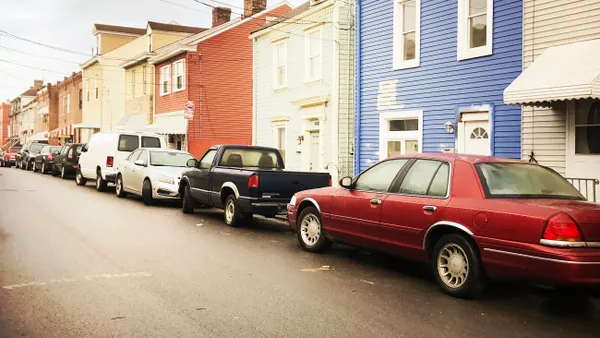Dive Brief:
- Two dozen cities and counties have filed lawsuits against the Federal Communications Commission (FCC) over newly-passed rules that limit the amount local governments can charge telecom companies to install infrastructure for 5G. Bloomberg BNA reports that three separate lawsuits filed in the U.S. Court of Appeals for the Ninth Circuit seek a reversal of the FCC rule.
- The FCC in September passed a controversial set of rules to streamline 5G infrastructure installation, including capping fees to only cover the government’s costs for installing small cells. Access fees would be limited to $270 per year per cell site, a reduction that could save wireless companies millions as they build out the network.
- San Jose, CA; Seattle and Huntington Beach, CA are leading the three lawsuits.
Dive Insight:
The FCC proposal was controversial from the start, as cities and counties said the federal government was stepping on their authority, potentially risking public safety, aesthetics and revenue opportunities (in addition to capping fees, the FCC plan also set deadlines for reviewing small cell sites). Some cities warned that digital inclusion efforts backed by 5G fees could be imperiled; Commissioner Jessica Rosenworcel pointed to San Jose, which signed a deal with three telecom providers to install small cells and used the money raised to increase internet access across the city.
The U.S. Conference of Mayors (USCM), which had already opposed the FCC plan, said in a statement that it backed the attempt to get a federal court to "review and rectify such unlawful actions."
"Instead of working with local governments to win the global race to 5G, the FCC is forcing cities to race to the courthouse to defend the most basic of local government rights — the authority to manage and seek fair compensation from private users that seek to employ public assets, owned and paid for by local taxpayers, for their personal profit without any obligation to serve all of the community whose assets are occupied," USCM CEO and Executive Director Tom Cochran said.
Politico also reports that the FCC is facing opposition from carriers, with AT&T and Sprint both filing lawsuits saying the commission should have done more to automatically approve applications for small cells if local governments did not act quickly enough.
Although companies are racing ahead to get 5G in major cities by the end of the year, the controversy over the streamlining rules shows how federal policy can still lag and present a possible barrier. Industry has called for more streamlining to get infrastructure on the ground faster — especially as they eye China’s success in installing 5G — but that can’t happen without the cooperation of cities and governments.









